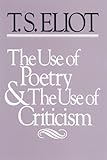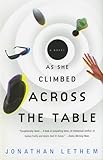In November of last year I was invited to speak at a symposium on the work of Don DeLillo. I chose the title for my talk — “Don DeLillo and the Sentence” — without really thinking too much about it. It was only after I’d fired off this title to the conference organisers that it occurred to me to wonder why it had suggested itself so readily And I realised that for me — and perhaps for a plurality of DeLillo’s readers–this is what DeLillo’s work chiefly means. For many of us, to read fiction of Don DeLillo is primarily to encounter a series of extraordinary sentences.
At various points in my life I’ve taken apart DeLillo’s sentences, to see how they worked. I’ve tried to write sentences like them. I even went so far as to publish a short story, ten years ago, that amounted to a pastiche of the DeLillo manner. This story featured a glazed and helplessly ironic narrator recounting events in what I then took to be a coolly postmodern style. (The subject-matter of the story was not, I should say, especially DeLilloesque: it was about a group of college students on a sex-and-drugs holiday in Majorca.) That story now languishes in deserved obscurity. I mention it now because it illustrates something essential about my own relationship, as a reader, to DeLillo’s work. He is, for me, one of the reigning monarchs of the sentence.
 As I drafted my talk. I decided to perform an experiment: I wrote down as many Don DeLillo sentences as I could remember without looking them up. There were quite a few:
As I drafted my talk. I decided to perform an experiment: I wrote down as many Don DeLillo sentences as I could remember without looking them up. There were quite a few:
Fame requires every kind of excess. I mean true fame, a devouring neon, not the sombre renown of waning statesmen or chinless kings. – Great Jones Street
Weapons have become godless since then. – Running Dog
It is all falling indelibly into the past. – Underworld
They got him for his speed. – End Zone
Tides of ash-light broke across the spires. – Great Jones Street
For a long time I stayed away from the Acropolis. It daunted me, that sombre rock. – The Names
He mastered the teeming details of bird anatomy.” – Cosmopolis
 That I could remember these sentences wholesale isn’t just a testament to my superhuman powers of recall (though it is also that). I know, from speaking to other DeLillo readers about his work, that they, too, have their personal anthologies — the DeLillo sentences that still loiter in the memory, long after the books have been closed. Looking at my own list of DeLillo sentences, I was struck by how few of them were gnomic epigrams. Epigrams, of course, are designed to be memorable: the epigrammatic writer, from La Rochefoucauld to Oscar Wilde, is the quotable writer, and DeLillo has always been a diligent epigrammatist. From The Names: “What ambiguity there is in exalted things. We despise them a little.” From Amazons, the novel DeLillo published in 1980 under the pseudonym Cleo Birdwell: “If a man’s name sounds right whether you say it forwards or backwards, it means he went to Yale.” There’s no knack to recalling epigrams; they are designed to be recalled. So, I remembered “Weapons have become godless since then” from Running Dog — firmly in the epigrammatic mode — but I also remembered an apparently trivial sentence from Cosmopolis: “He mastered the teeming details of bird anatomy.” The reason I remembered this sentence – the reason I find so many of DeLillo’s sentences memorable – is, I think, because it appeals to what T.S. Eliot called “the auditory imagination” in The Use of Poetry and the Use of Criticism (1933) :
That I could remember these sentences wholesale isn’t just a testament to my superhuman powers of recall (though it is also that). I know, from speaking to other DeLillo readers about his work, that they, too, have their personal anthologies — the DeLillo sentences that still loiter in the memory, long after the books have been closed. Looking at my own list of DeLillo sentences, I was struck by how few of them were gnomic epigrams. Epigrams, of course, are designed to be memorable: the epigrammatic writer, from La Rochefoucauld to Oscar Wilde, is the quotable writer, and DeLillo has always been a diligent epigrammatist. From The Names: “What ambiguity there is in exalted things. We despise them a little.” From Amazons, the novel DeLillo published in 1980 under the pseudonym Cleo Birdwell: “If a man’s name sounds right whether you say it forwards or backwards, it means he went to Yale.” There’s no knack to recalling epigrams; they are designed to be recalled. So, I remembered “Weapons have become godless since then” from Running Dog — firmly in the epigrammatic mode — but I also remembered an apparently trivial sentence from Cosmopolis: “He mastered the teeming details of bird anatomy.” The reason I remembered this sentence – the reason I find so many of DeLillo’s sentences memorable – is, I think, because it appeals to what T.S. Eliot called “the auditory imagination” in The Use of Poetry and the Use of Criticism (1933) :
What I call the ‘auditory imagination’ is the feeling for syllable and rhythm, penetrating far below the conscious levels of thought and feeling, invigorating every word; sinking to the most primitive and forgotten, returning to the origin and bringing something back, seeking the beginning and the end. It works through meanings, certainly, or not without meanings in the ordinary sense, and fuses the old and obliterated and the trite, the current, and the new and surprising, the most ancient and the most civilised mentality.
“He mastered the teeming details of bird anatomy.” What’s memorable about this sentence is its deployment of assonance: the way the ee in details picks up the ee in teeming, seeming audibly to multiply those myriad details – the sentence is elongated by those long, rhyming ees; but this elongation is bracketed by two sharp As: mastered and anatomy. Aurally speaking, this sentence is choreographed to perfection; and visually, it is perfectly balanced: the act of mastery, and the crisp mention of the thing mastered, contained between them those unruly “teeming details,” so that the sentence itself enacts Eric Packer’s mastery – and enacts, also, his larger mastery, of the mysteries of global finance.
You can do this sort of thing with any number of DeLillo sentences. Look at the opening lines of The Names: “For a long time I stayed away from the Acropolis. It daunted me, that sombre rock.” I could note the Proustian echo in that “For a long time”; I could note the heavy, ponderous assonance of “daunted,” “sombre,” and “rock” that aurally mimic the physical presence of the Acropolis. These sentences are memorable because they have been engineered with precision: they are elevated into the range of the epigrammatic because they are densely packed with extractable ore, and designed to awake a response in the auditory imagination by penetrating, as Eliot puts it, “far below the conscious levels of thought and feeling.” To read DeLillo at the level of the sentence – as I have done and continue to do – is to encounter a level of linguistic sophistication we rightly call poetic. Rereading Great Jones Street while I was writing this paper, I was struck afresh at how purely original DeLillo’s sentences are. Like Melville – like Bellow – like surprisingly few writers, even those generally accounted “great” – DeLillo has fashioned a prose idiolect of quite striking sophistication and range. His sentences are works of art in themselves; they reward close study; they give enormous aesthetic pleasure.
 I am not, of course, the first person to observe that Don DeLillo writes great sentences. Even James Wood, in his sceptical review of Underworld (published in The New Republic in 1997) describes DeLillo’s prose as “richly exact.” And Wood, in fact, is sceptical of DeLillo’s work, in part, precisely because of what he sees as its focus on smaller units of fictional composition – the sentence, the setpiece, the purple patch. For Wood, Underworld – and DeLillo’s work in general – amounts to “a collection of lavish fragments, set down in a maze.” And Wood, I think, awakens us to a curious risk inherent in admiring DeLillo chiefly for his sentences. In a fascinating essay, “Half-Against Flaubert,” originally published in The New Republic in 1999, Wood presents a case against the kind of sentence-fetishism inaugurated, as Wood sees it, by Flaubert. Prose that lavishes attention on each of its sentences enforces, for Wood, “the tyranny of the detail,” and gives rise to a prose “broken into units of hard sensation, and merely swiping at life.” And I think there is an aesthetic risk that comes with valuing a writer chiefly for his sentences – the way I value Don DeLillo. Works of literature are, of course, made up of sentences – there isn’t anything else – but there are other units of composition, from the paragraph to the chapter to the form of the novel itself; and the valuing of sentences tout court can, I think, very easily confine us within a rather claustrophobic, New-Criticism-type box – can leave us blind to other spheres of aesthetic and ethical experience. In other words, there are risks as well as pleasures, in responding to an author in this way (as merely a purveyor of marvellous sentences).
I am not, of course, the first person to observe that Don DeLillo writes great sentences. Even James Wood, in his sceptical review of Underworld (published in The New Republic in 1997) describes DeLillo’s prose as “richly exact.” And Wood, in fact, is sceptical of DeLillo’s work, in part, precisely because of what he sees as its focus on smaller units of fictional composition – the sentence, the setpiece, the purple patch. For Wood, Underworld – and DeLillo’s work in general – amounts to “a collection of lavish fragments, set down in a maze.” And Wood, I think, awakens us to a curious risk inherent in admiring DeLillo chiefly for his sentences. In a fascinating essay, “Half-Against Flaubert,” originally published in The New Republic in 1999, Wood presents a case against the kind of sentence-fetishism inaugurated, as Wood sees it, by Flaubert. Prose that lavishes attention on each of its sentences enforces, for Wood, “the tyranny of the detail,” and gives rise to a prose “broken into units of hard sensation, and merely swiping at life.” And I think there is an aesthetic risk that comes with valuing a writer chiefly for his sentences – the way I value Don DeLillo. Works of literature are, of course, made up of sentences – there isn’t anything else – but there are other units of composition, from the paragraph to the chapter to the form of the novel itself; and the valuing of sentences tout court can, I think, very easily confine us within a rather claustrophobic, New-Criticism-type box – can leave us blind to other spheres of aesthetic and ethical experience. In other words, there are risks as well as pleasures, in responding to an author in this way (as merely a purveyor of marvellous sentences).
This is precisely the theme of a short story by Jonathan Lethem, first published in The New Yorker in December 2007. In “The King of Sentences,” the narrator and his girlfriend, Clea, are aspiring writers who work in bookstores (as the narrator puts it: “We worked in bookstores, the only thing to do.”) Clea and the narrator are sentence-fetishists in embryo:
This was the time when all we could talk about was sentences, sentences—nothing else stirred us…Punctuation! We knew it was holy. Every sentence we cherished was sturdy and Biblical in its form, carved somehow by hand-dragged implement or slapped onto sheets by an inky key. For sentences were sculptural, were we the only ones who understood?
They central joke of the story is that Clea and the narrator persist in understanding sentences in terms that go beyond the aesthetic – to the political, the ethical, and even the sexual:
A good brave sentence (“I can hardly bear your heel at my nape without roaring”) might jolly Clea to instant climax. We’d rise from the bed giggling, clutching for glasses of cold water that sat in pools of their own sweat on bedside tables. The sentences had liberated our higher orgasms, nothing to sneeze at. Similarly, we were also sure that sentences of the right quality could end this hideous endless war, if only certain standards were adopted at the higher levels. They never would be. All the media trumpeted the Administration’s lousy grammar.
There are a lot of sly things going on in this passage – I pause to note the hidden joke about Roland Barthes’s concept of jouissance (reduced, here, to its most absurd essence: a sentence that literally makes you come). We might also note that this story about sentence-fetishism is itself composed of sentences that are frequently bathetic, or anticlimactic – a nice irony. “The sentences had liberated our higher orgasms, nothing to sneeze at” – this sentence, fairly typically, scales rhetorical heights before collapsing into cliché. The central joke, of course, is the idea that scrupulous attention to sentences can carry profound political and ethical consequences – a fine parody of one of the unspoken ideas animating the work of I.A. Richards and the New Critics, but also, of course, a joke about idealistic young aspiring writers, who value literature – and literary sentences – so intensely that they are gripped with missionary zeal. At this level, “The King of Sentences” is a satire on the blindness of a certain way of reading – a way of reading that is passionate, incoherent, fetishistic, and focused almost exclusively on the sentence. And I recognise this as one of my own ways of reading – more specifically, I recognise it as one of the ways in which I read Don DeLillo.
Idealistic young writers are, of course, prone to the exaltation of their chosen writers above all others, and this is very much the case with Clea and her boyfriend. They worship one writer and one writer only: the man known as the King of Sentences.
Others might hail kings of beer or burgers—we bowed to the King of Sentences. There was just one…The King of Sentences gave no interviews, taught nowhere, condescended to appear at no panels or symposia. His tastes, hobbies, and heartbreaks were unknown, and we extrapolated them from his books at our peril. His digital footprint was pale: people like that didn’t care about people like him…In the same loft where we entangled, Clea and I drove ourselves mad reading the King of Sentences’ books aloud, by candlelight, when we ought to have been sleeping. We’d tear the book from each other’s hands for the pleasure of running his words like gerbils in the habitrails of our own mouths.
 There are a couple of obvious models for the figure of the King of Sentences. He might be Pynchon. He might be Salinger. But I don’t think so. There are a few clues that lead me to believe that, a few biographical and bibliographical details aside, the King of Sentences is Don DeLillo. We know, of course, that Lethem admires DeLillo – that as a younger writer, he learned to write in part by imitating DeLillo’s sentences. Lethem’s third novel, As She Climbed Across the Table (1997), is, in fact, a carefully-wrought DeLillo pastiche. And from what we learn about the King of Sentences, he bears a striking resemblance to DeLillo – particularly to the elusive, publicity-shy figure DeLillo cut in the decades before Underworld was published. Here are some clues. Clea and the narrator discuss the various editions of the King’s books that they have collected:
There are a couple of obvious models for the figure of the King of Sentences. He might be Pynchon. He might be Salinger. But I don’t think so. There are a few clues that lead me to believe that, a few biographical and bibliographical details aside, the King of Sentences is Don DeLillo. We know, of course, that Lethem admires DeLillo – that as a younger writer, he learned to write in part by imitating DeLillo’s sentences. Lethem’s third novel, As She Climbed Across the Table (1997), is, in fact, a carefully-wrought DeLillo pastiche. And from what we learn about the King of Sentences, he bears a striking resemblance to DeLillo – particularly to the elusive, publicity-shy figure DeLillo cut in the decades before Underworld was published. Here are some clues. Clea and the narrator discuss the various editions of the King’s books that they have collected:
We owned his titles in immaculate firsts and tattered reading copies and odd variant editions. It thrilled us to see the pedestrian jacket copy and salacious cover art on his early mass-market paperbacks: to think that he’d once been considered fodder for dime-store carrousels!
 There are indeed some early mass-market paperbacks of DeLillo’s books (Running Dog, End Zone, even Ratner’s Star) that display “salacious cover art” – the mass-market paperback edition of Amazons, from 1981, shows a woman naked from the waist down, attired (left foot) in a hockey boot and (right foot) a slingback shoe. Lethem, an avowed collector of mass-market paperbacks, would know these editions well. There is also Clea’s name, which may or may not allude to the pseudonym DeLillo chose when he wrote Amazons – Cleo Birdwell.
There are indeed some early mass-market paperbacks of DeLillo’s books (Running Dog, End Zone, even Ratner’s Star) that display “salacious cover art” – the mass-market paperback edition of Amazons, from 1981, shows a woman naked from the waist down, attired (left foot) in a hockey boot and (right foot) a slingback shoe. Lethem, an avowed collector of mass-market paperbacks, would know these editions well. There is also Clea’s name, which may or may not allude to the pseudonym DeLillo chose when he wrote Amazons – Cleo Birdwell.
Of course, whether or not the King of Sentences is DeLillo is only tangentially important. DeLillo’s presence hovers behind Lethem’s text because, I think, DeLillo is so famously and distinctively a writer who appeals to sentence-lovers, with all their blindnesses, hubristic ideals, and narrow-minded cerebrations. What’s centrally important is Lethem’s sophisticated assault on the pieties and pretensions of his sentence-fetishist protagonists. At length, overwhelmed by their obsession, the narrator and Clea track the King of Sentences down to Hastings-on-Hudson, a small town in Westchester in Upstate New York (which is, according to a profile published in the Daily Telegraph in 2003, more or less where the real Don DeLillo keeps a home). They stake out the King’s Post Office box – and, just as expected, the King himself arrives. Their conversation, naturally, is disappointing:
“Let me be clear. I have nothing for you.”
“Take us home.”
“Not on your life.”
“We came all this way.”
He shrugged. “When’s the next train back?”
The sentences that emerged from his mouth were flayed, generic, like lines from black-and-white movies. I tried not to be disappointed in this stylistic turn. He had something to teach us, always.
Nonetheless, the King does deliver the occasional extremely DeLillo-like line of dialogue (“I eat only what my housekeeper prepares. A disproportion of sodium could murder me at this point.”) Eventually, the narrator and Clea follow the King of Sentences back to a room in the local hotel, where, in a budget room, he asks them to strip:
We stripped, racing to be the first bared to his view. I’d lose the race either way, for Clea had rigged the game: she had written a sentence on her stomach in blue marker. The sorcerer lately couldn’t recall whether he was a capable sleeper or an insomniac. Brilliant, I thought bitterly. The King stared. I saw Clea’s pubic hair through the eyes of the King. Clea’s bush was full and crazy. I thought, I will never see it again without seeing the pubic hair at which the King of Sentences once glanced. The King said, “Insomniac, I believe.”
Once the two are naked, the King of Sentences shreds their clothes, in “a weary frenzy of destruction,” and walks out the door. As he leaves, he says: “That’s all, you ask? Yes, that’s all. That’s more than enough.” And in the story’s final sentences, the narrator remarks that now he understands “just what it takes to be King. How much, in the end, it actually costs.”
 This is, I think, a brilliantly dark and amusing fable about the risks inherent in making grandiose aesthetic, ethical, and political claims about what are, after all, only sentences. (It is also, I think, a riff on Henry James’s famous line, from “The Middle Years”: “We work in the dark, we give what we have…The rest is the madness of art.”) Significantly, we never get to read a single sentence written by the King of Sentences; we meet him only as a bland avatar of white American masculinity – with an accompanying sexual rapacity, or interest in crude sexual power, that we might see as typical of a certain generation of white male American novelists (though not, I should think, of Don DeLillo). Lethem’s interest is in exposing his young literary idealists to the enigmatic textures of the real – the real, in this case, being that which goes beyond mere sentences, into realms of ethical experience that they have only begun to explore.
This is, I think, a brilliantly dark and amusing fable about the risks inherent in making grandiose aesthetic, ethical, and political claims about what are, after all, only sentences. (It is also, I think, a riff on Henry James’s famous line, from “The Middle Years”: “We work in the dark, we give what we have…The rest is the madness of art.”) Significantly, we never get to read a single sentence written by the King of Sentences; we meet him only as a bland avatar of white American masculinity – with an accompanying sexual rapacity, or interest in crude sexual power, that we might see as typical of a certain generation of white male American novelists (though not, I should think, of Don DeLillo). Lethem’s interest is in exposing his young literary idealists to the enigmatic textures of the real – the real, in this case, being that which goes beyond mere sentences, into realms of ethical experience that they have only begun to explore.
For me, “The King of Sentences” is a warning about a certain narrowly passionate way of reading. No matter how marvellous the sentences, Lethem reminds us, we should be careful to see beyond them. We should look at what a sentence points towards, as well as at what it does. It is, I think, the kind of lesson that DeLillo’s work itself repeatedly teaches – or would teach us, once we begin to look beyond those carefully engineered, verbally rich, instantly unforgettable sentences.










